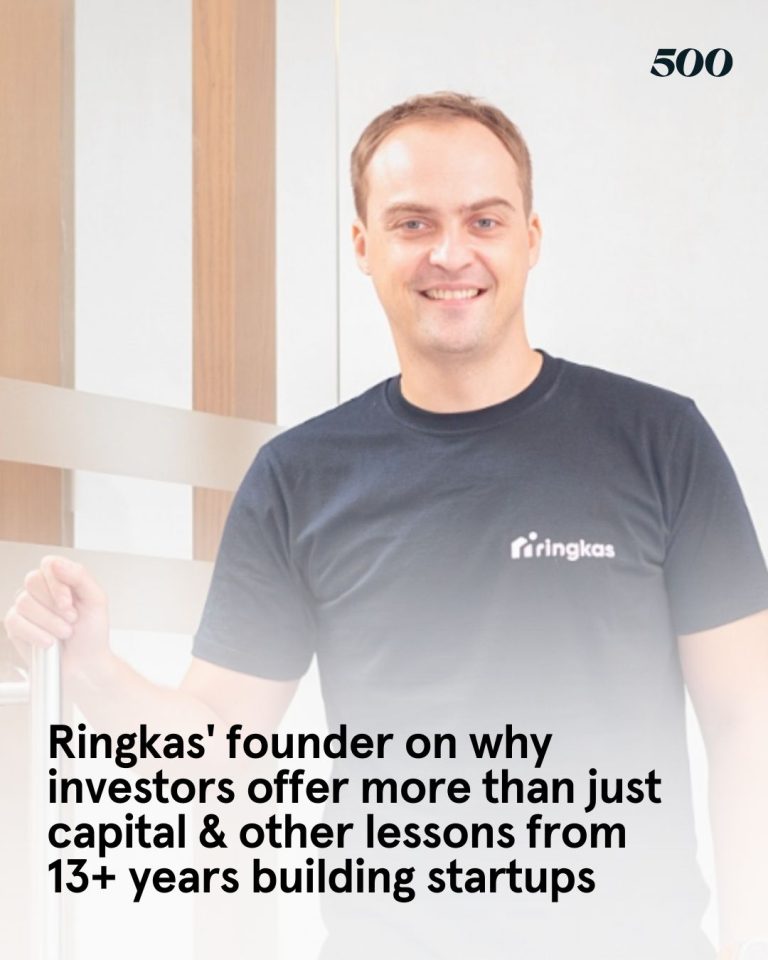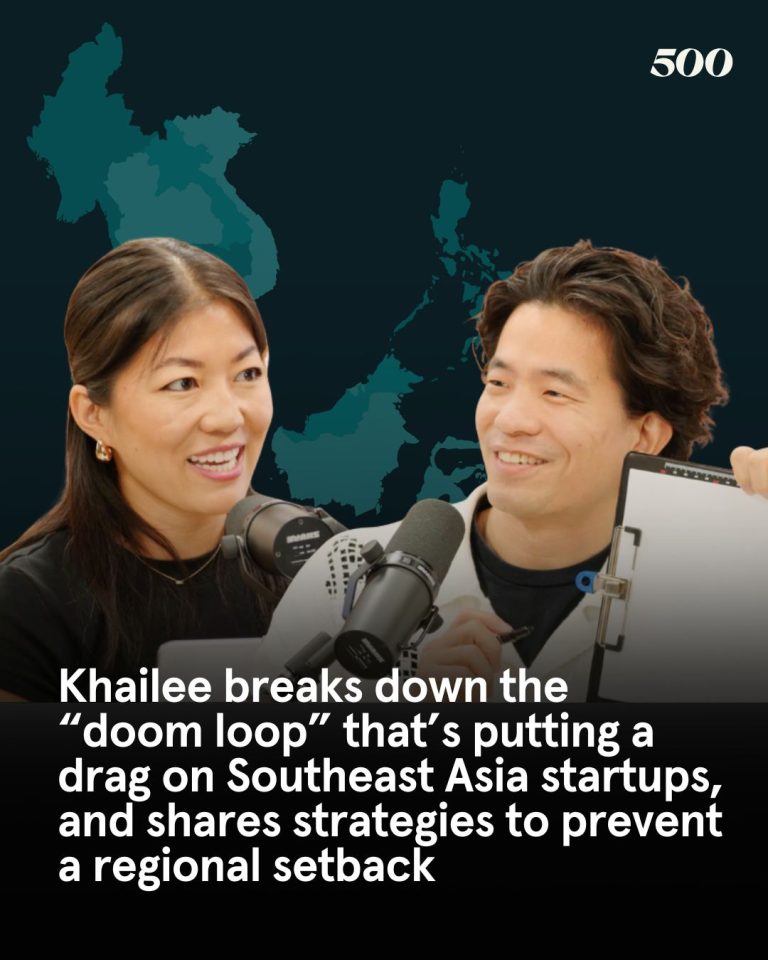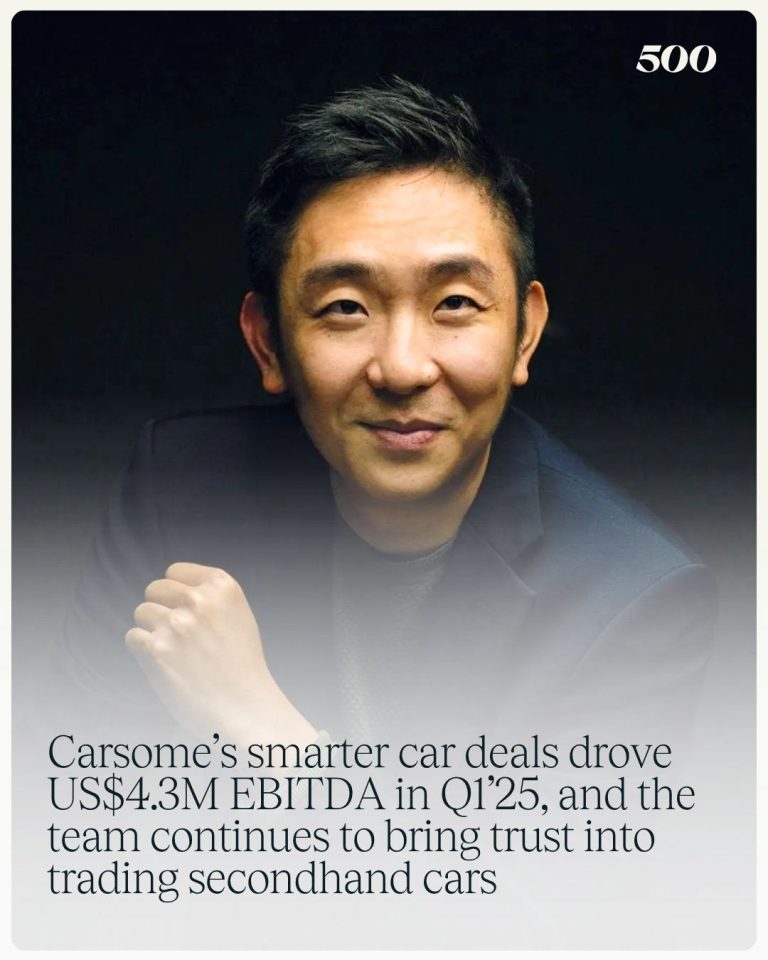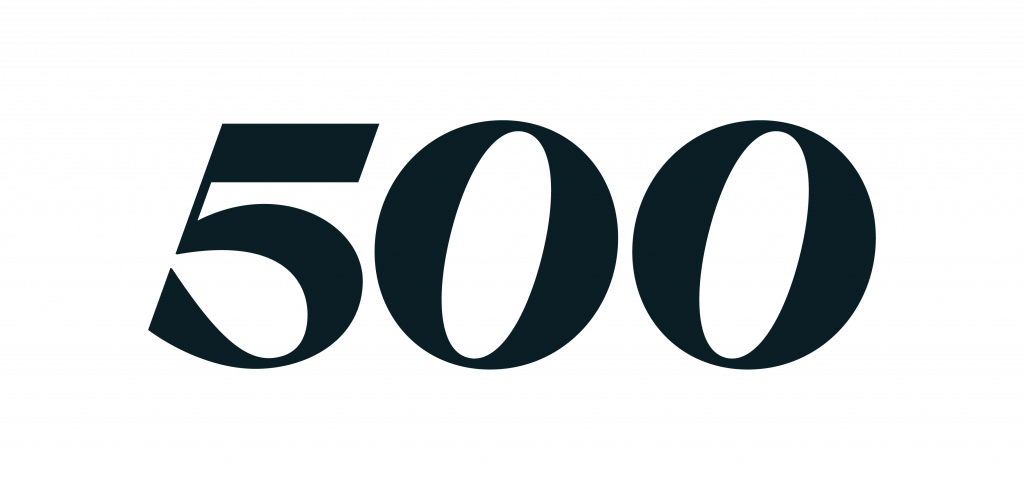From edible to sustainable
- Pollution. Climate change. Slaughter practices. These are just some of the negative impacts that the leather industry contributes to. The global environmental movement led to a demand for leather alternatives, forecasted to grow to US$89.6B by 2025.
- Companies across the automotive, fashion, and furniture industries have steadily introduced leather alternatives for years. Companies like 500-backed MYCL is one of them.
- You may know of MYCL as a mushroom leather company, but did you know that they first started off selling edible mushrooms? “We thought, why don’t we put mushrooms in the box and we sell it to customers, so people can grow the mushrooms anywhere in their house, in their offices?” shared Co-founder & CEO Adi Reza Nugroho.
- Then, ideas for other applications came into the picture. The team did some research, and in 2016 discovered that mushrooms can also be used for alternative materials. “The first iteration back then was building materials. So, we designed building materials using the mycelium composite to replicate or mimic the concrete and steel structure,” he said.
- The mushroom mycelium has the ability to create a unique, strong material without having any plastic,” he added.
- In addition to environmental benefits, MYCL’s alternative leather has also brought about a surprising economic benefit to their clients. Adi shared that some countries have banned leather from Indonesia due to poor wastewater treatment. “Once [our brand partners] use our materials, they can now export overseas,” he said.
- Currently, MYCL has over 50 customers, with a total contracted value of up to US$2M. The team aims to harvest 250,000 sq ft of mushrooms next year, displacing leather production which would otherwise create 430 tons of carbon dioxide emissions, the slaughter of 7,000 cows, and the conversion of 1.5M liters of fresh water into tanning effluent.
- Listen to the full Indo Tekno podcast episode.
Other stories you may have missed:
- Naluri’s co-founder shares how data can create a healthier and more productive workforce
- WORQ cultivates sustainable communities and opens up global opportunities for companies and workers
- FarMart reduces carbon emissions & food waste, and increases farmers’ financial well-being
- Qarbotech lands top prize & new investment for innovation that help farmers improve crop yields by up to 60%
- Xfers obtained In-Principle Approval under The Payment Services Act, allowing the company to offer a wider scope of payment services
- Bukalapak received the Human Capital & Performance Award 2023 for categories “The Best Learning And Development Strategy” and Senior Vice President of Talent, Suryo Sasono, as “The Best Human Capital Future Leader Of The Year” in the e-commerce industry
- TheNoor to move their headquarters to Saudi Arabia, marking a significant strategic shift for the startup with ambitions to be the go-to app for Muslims who want to live their lives based on Islamic principles
- Carsome is looking to strategically position itself in a Southeast Asian market it sees as growing to an estimated $270B by 2025
- 99 Group partnered IDN Media to launch the Indonesia Millennial and Gen-Z Report 2024, providing fresh, relevant insights to the audience, particularly the younger generation




